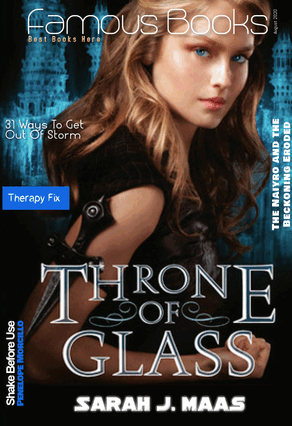In 1996, Dan’s interest in code-breaking and covert government agencies led him to write his first novel, Digital Fortress, which quickly became a #1 national bestselling eBook. Set within the clandestine National Security Agency, the novel explores the fine line between civilian privacy and national security. Brown’s follow-up techno-thriller, Deception Point, centered on similar issues of morality in politics, national security, and classified technology.
The son of a Presidential Award winning math professor and of a professional sacred musician, Brown grew up surrounded by the paradoxical philosophies of science and religion. These complementary perspectives served as inspiration for his acclaimed novel Angels & Demons—a science vs. religion thriller set within a Swiss physics lab and Vatican City, which was followed by the runaway bestseller The Da Vinci Code.
Check out the interview :
How would you describe The Da Vinci Code to someone who has not read any of your previous novels?
The Da Vinci Code is the story of renowned Harvard symbologist Robert Langdon, who is summoned to the Louvre Museum to examine a series of cryptic symbols relating to Da Vinci's artwork. In decrypting the code, he uncovers the key to one of the greatest mysteries of all time…and he becomes a hunted man. One of the many qualities that makes The Da Vinci Code unique is the factual nature of the story. All the history, artwork, ancient documents, and secret rituals in the novel are accurate…as are the hidden codes revealed in some of Da Vinci's most famous paintings.
Which part of researching The Da Vinci Code was the most personally interesting to you? Were there any facts, symbols, or themes that you would have liked to include, but they just didn't make into the story?
For me the most astonishing aspect of researching The Da Vinci Code was the realization that one of history's greatest "secrets" is not nearly as secret as we think. Clues to its true nature are all around us…in art, music, architecture, legend, and history. In the words of Robert Langdon, "The signs are everywhere."
What are your 10 favorite books —and why?
Of Mice and Men (John Steinbeck) —Simple, suspenseful, and poignant. Better yet, the first paragraph of every chapter is a master class in writing effective description.
Gödel, Escher, Bach (Douglas Hofstadter) —The 3% I actually understood was fascinating.
Kane and Abel (Jeffrey Archer) —I was amazed how well Archer handled the long time spans without ever losing the narrative pulse. The ultimate novel of sibling rivalry.
Plum Island (Nelson DeMille) —He remains the master of substance, wry humor, and controlled point of view.
The Bourne Identity Series (Ludlum) —Ludlum's early books are complex, smart, and yet still move at a lightning pace. This series got me interested in the genre of big-concept, international thrillers.
Much Ado About Nothing (William Shakespeare) —I didn't understand how funny this play truly was until I became an English teacher and had to teach it. There is no wittier dialogue anywhere.
Wordplay: Ambigrams and Reflections on the Art of Ambigrams (John Langdon) —Artist and philosopher John Langdon is one of our true geniuses. His book changed the way I think about symmetry, symbols, and art.
Codes Ciphers & Other Cryptic & Clandestine Communication (Fred Wrixon) —A phenomenal encyclopedia of the art, science, history, and philosophy of cryptology.
The Puzzle Palace (James Bamford) —Although dated, this book is still one of the most captivating inside looks at the covert world of America's premier intelligence agency.
The Elements of Style (Strunk and White) —Because who can possibly remember all the rules of grammar and punctuation?
Favorite films?
My all-time favorites would have to be Fantasia, Life is Beautiful, Annie Hall, and Zeffirelli's Romeo and Juliet. Of course, if you're looking for pure popcorn entertainment, you can't beat Indiana Jones or the Pink Panther series.
Favorite music?
I've recently become hooked on the Spanish singer Franco de Vita. I also listen to The Gypsy Kings, Enya, Sarah Mclachlan, and (if I'm feeling old) the very young and talented songwriter Vanessa Carlton.
If you had a book club, what would it be reading — and why?
The Golden Ratio: The Story Of Phi, The World's Most Astonishing Number (Mario Livio) — Admittedly, to imply that a book club could get excited talking about a "number" probably sounds far-fetched, but this book ties together themes of art history, nature, mathematics, philosophy, and religion in an accessible and eye-opening way. Sure to spark great discussions.
What are your favorite books to give — and get — as gifts?
This will sound nerdish, but the all-time best "gift book" has to be a leather-bound copy of the Oxford English Dictionary. How can you go wrong? Of course, don't forget a magnifying glass to go with it.









Post a Comment